Wes Hobson still gets love after all these years
Wes Hobson retired from racing as a professional triathlete in 2001, and although he accomplished a lot as an athlete, he might however be best known for the CLIF Bar swim start simulation ad that still is shared very frequently and gets great responses.
Slowtwitch: Thank you very much for your time.
Wes Hobson: Thanks Herbert and to Slowtwitch.com. I appreciate you reaching out to me.
ST: What are you up to these days?
Wes: Continuing to do residential real estate for the last 15 years. Partnering with my wife, Hayley, with her doTERRA essential oils business. We find that athletes are loving the use of these products and recently the it couple of triathlon, Mirinda Carfrae and Tim O’Donnell are enjoying the doTERRA products, and I am part of a software company that was originally designed by a triathlon coach, Adam Zucco, for triathlon coaches and we have since expanded the platform to entrepreneurs over all categories. The platform, www.wavoto.com, allows a person to better keep in contact when a customer comes to one’s website through the use of funnels, e-mail campaigns etc.
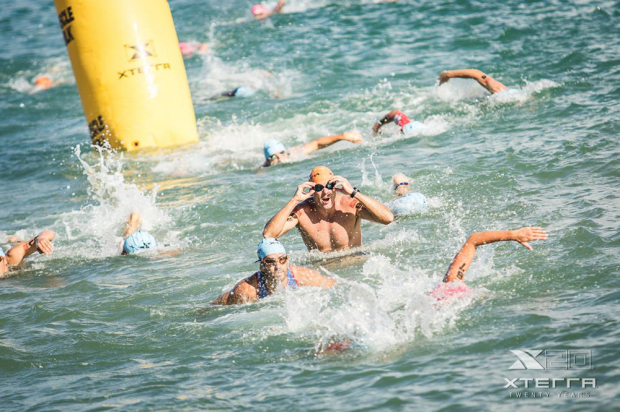
ST: You raced professionally from 1990 until 2001, and could you please share what you remember most fondly about that time?
Wes: In an overall sense, I feel so fortunate to be able to have triathlon support me for those years financially. I raced in at least 23 countries, and many of them multiple times, and got to see so much of the world. If I didn’t do triathlon, I wouldn’t have known better about what the world offers and probably would have gone straight into the corporate arena not knowing there was a different way to make a living and experience life to its fullest. Triathlon opened my eyes to not just being a triathlete, but also other ways to make a living post triathlon career. I have always been entrepreneur and I don’t see that changing.
I also reflect on the friends I have made all over the world through triathlon and still keep in touch with them through Facebook etc.
ST: Do you still hang out with some of them?
Wes: Yes, when I get a chance to. With doTERRA, we have strong teams in Europe and Australia so we go to each area once a year and I try to connect with some of them. For instance, I recently saw The Croc, Brad Beven and Craig Walton on the last trip to OZ.
ST: You snagged the Coke Grand Prix series title in 1992, were the first American to win an ITU World Cup, and you won Escape from Alcatraz in 1999 after dealing with chronic fatigue. Is it fair to call these results your career highlights?
Wes: Yes, you nailed the highlights right there. Those and being announced as the USOC Triathlete of the Year in 1992. The Coke Grand Prix was the ultimate series back then and winning it was amazing, only to have CAT Sports three months later say they were disbanding and not going to give me the $30,000, but that is a whole other story. I think only 3 or 4 US men have won a World Cup since my inaugural win, so I am proud to be in exclusive company. On an aside, I won that World Cup in Amakusa, Japan. The following week in Narita, Japan, the ITU allowed its first draft legal race where I placed 5th or 6th. It was a high in my career that led to a valley as running was not my best strength of the 3 disciplines and I felt like here I am on top of my game and then whoosh, the drafting started to take effect.
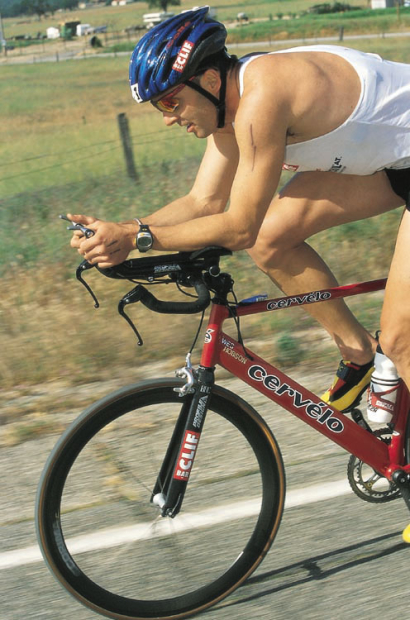
ST: For those who don’t understand the difference, can you talk about how the game changed (with draft legal)?
Wes: Basically, dependent on wind, speed, size of you, size of rider in front of you, a cyclist following in line behind another cyclist going the same speed can save up to 45% effort. That is a huge amount of energy savings. I.E. if I am busting my butt, breaking the wind and going 27 mph, a cyclist that could go only 20 mph on his own would be able to stay with me using the same energy as if he was going 20 mph. There is some similarity to drafting in a mass swim, but not as great.
As triathlon has become specialized as being one sport, I realize that at an Olympic distance length, when there are 60 pros toeing the line (1500 amateurs), it is hard to officiate drafting. This is why I think USAT /ITU should make a concerted effort to at least try, not once, but several times, more at this distance to have the bike go last. The run segment will separate athletes by good margins. Then when people get on the bike, there will be single riders and packs will be much smaller. The biker needs to go balls to the wall to stay in front, catch the leaders or to breakaway. There is nothing to be left for a run. Nowadays in big draft legal pro races, you see 30 riders in a pack staying together with no real movement except one or two futile breakaways. No top level runner will breakaway. They will just sit in the pack and save energy for the run. It has become a run race only. That isn’t exciting for TV and it won’t be as long as it stays this way. Olympic distance triathlon has stagnated at the pro level. It has to change to get sponsors and audience interest.
ST: You did not make the Olympic team in 2000, and I think that was hard on you. Was that in part the reason why you ended your career in 2001?
Wes: No, it wasn’t hard on me at all. After having chronic fatigue in 1997, I couldn’t train and race the way I used to prior to getting CF. My body just didn’t respond like it used to and I could only train at about 70% of the effort as I used to, thus I knew it would be tough to make the team. I finished 5th American at the Dallas trials and the top 3 went. If only they had triathlon in the Olympics in 1996. At the beginning of the 2001 season, I knew it was going to be my last year, so I did races I wanted to do but never had the opportunity to do. My last pro race was Xterra World Champs where I finished 10th crossing the finish line holding my 4-week old daughter, Makenna, and I wanted her to experience my life as a pro triathlete. My body just didn’t respond at that race like I wished it would and it reiterated I was making the right decision to retire.
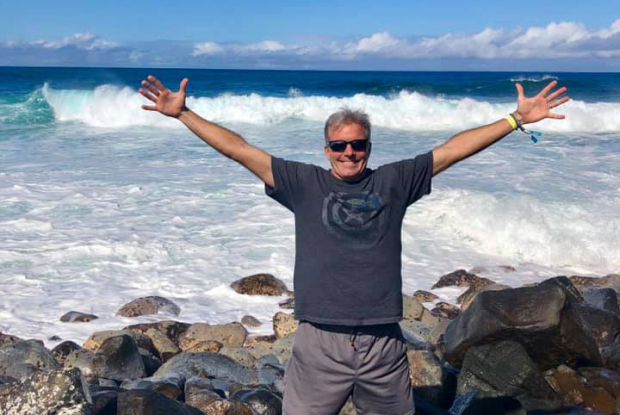
ST: How much do you follow the sport now and what do you see as the major changes from back then?
Wes: I follow the sport some as I do have a lot of pro friends and amateurs that are competing. The major changes I see are on the pro level, there aren’t as many prize money races at the Olympic distance event. It would be very hard to make a living now as I did then. I think a lot has to do with drafting being more prevalent in these races. This distance has become more of a runner’s race and so there are fewer dominant triathletes that consistently win races and thus it is tougher for sponsors to say hey, I know this triathlete will win at least 5 races this season and thus it is worth an investment. For me, prize money gave me my living and sponsorship was icing on the cake. If drafting needs to be accepted, I have always felt that at least at the pro level, the order of disciplines be swim, run, bike. It would be much better for TV and the biking would become much more important.
World Triathlon Corp has become much more dominant in triathlon with all of its races. This is good for overall awareness of people outside of triathlon, but I think it has suffocated some of the other races. As is true with any sport, technology has become more advanced for training and racing, such as power meters. I truly believe this has helped so many people improve their race performance and keep them more interested in training. However, part of me is like just go out there and train hard and expand your pain threshold. Side note, this is coming from a guy who got chronic fatigue so take it as a grain of salt.
ST: I think you might be the triathlete that most folks know, without really knowing who you are. And what I mean by that is that amazingly entertaining CLIF Bar commercial that featured you simulating a triathlon start. And it is still often shared these days.
Wes: Yes, it seems like every 6 months that clip starts going around and I get people e-mailing me about how funny and realistic it feels to them for a swim start.
ST: When was that video made and how did it come about?
Wes: It was made in 1999 after I won Escape From Alcatraz as CLIF Bar, a long-time great sponsor, wanted to make the commercial for general use and to run it on network TV when triathlons were being aired. They flew me out to San Fran and I didn’t know the details, just that it was to do a swim start video.
ST: Did you have any bruises from that video shoot or was it not much different from an actual race?
Wes: So Orca was my wetsuit sponsor and they sent me a brand new wetsuit to wear. We did about 8 takes. On about the 6th take I told the cameraman to concentrate on the guy hitting me before I entered the water…. I hit him pretty good and they used that clip in the commercial. On the 7th take, as I was getting pounded in the water, one of the boat propellers got close to my feet and I said whoa. When I got done with the shoot, there were 8 holes in my brand new wetsuit. I gave the wetsuit to one of the crew. Overall a great experience and it is always fun to hear from triathletes how they can relate to it.
ST: What did Orca say when they heard you managed to destroy that suit in a day?
Wes: Don’t recall. I don’t think any wetsuit company designs a wetsuit for this type of abuse.
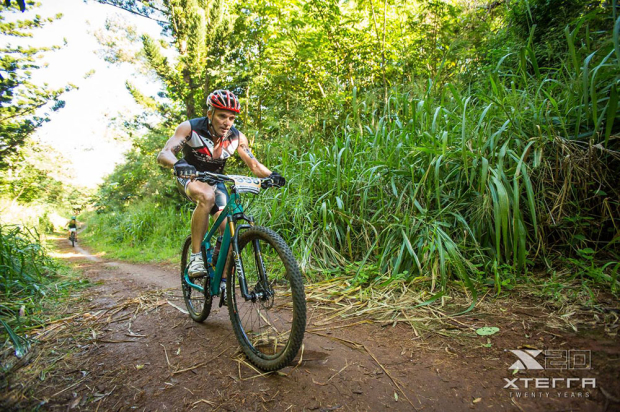
ST: How much swimming running and cycling are you doing these days?
Wes: My brown lab Xander forces me to run 4 to 5 times a week. After taking a recent 7 month break from cycling, I have been getting out 2 times a week for the last couple of months. A couple of weeks ago when I was riding the mountains around Boulder, I was thinking how getting on my bike is the one thing I do where I still feel like I am in my twenties. I find biking to be so peaceful and a great time to think about all things. Last time I swam was 3 years ago, keep in mind I had been swimming since I was 7, where I spent 6 weeks getting ready for Xterra’s 20th Anniversary in Maui. Midway thru the bike, as I was getting passed by everyone, I thought to myself there is a reason why I don’t do this anymore. Honestly, I think part of the reason why I haven’t done but say 4 triathlons since retiring, and those mostly on a bet, anniversary or assisting a dear friend of mine who has lost some of his sight, is that I feel I achieved a lot of goals in triathlon. It would be very hard for me to train diligently for triathlons and not compete at the level I used to.
ST: What about other distances or challenges where you do not have a notion what it ought to be? And I do not mean Ironman.
Wes: I do like doing events/races where I don’t know what I am getting myself into or doing it and then doing it again better. I have done a variety of run races many times since retiring such as Pikes Peak Ascent, Moab’s Red Hot 33k, Wild West 200 mile run relay and some marathons (I won’t run pavement marathons anymore as they just aren’t fun on the body). I have also done bike tours. As those reading this realize, triathlon training for serious athletes takes a lot of time. It is much easier to go for a 4 hour bike ride then it is to train 4 hours a day for triathlon. If you do an hour swim, hour run and two bike ride, that is really 6 hours of your day with traveling to a pool, preparing for each discipline. When I have free time, I like to play poker. Although it doesn’t exercise the body, I like the competitiveness of playing against other people. I will always stay active doing something. Exercise is a lifestyle. Sure there will be periods when you don’t or can’t, but I feel one of the best ways to live longer is to keep the body active, and who doesn’t want to live longer.
ST: As a realtor, do many of the triathletes in Boulder come to you when looking to either buy or sell a home?
Wes: Yes, I still consider Boulder the Mecca of triathlon, not the beginning of triathlon so people in San Diego don’t get your feathers ruffled. It is a great niche market for triathlon and I am very fortunate to be located in Boulder. FYI, we bought a house in Cardiff by the Sea, CA 3 years ago as a second home so I do enjoy training in triathlon’s birthplace.
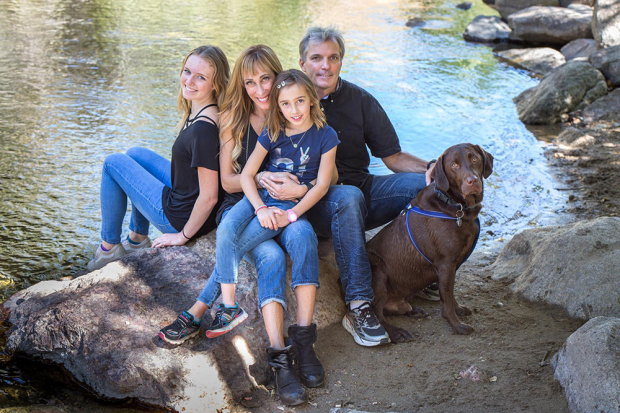
ST: How much has Boulder changed in the last 20 years?
Wes: I have been in Boulder actually since 1989 – 30 years now. Triathlon brought me to Boulder right after college and I never left. At times, I feel like it is getting too congested, but that is relative as I know 95% of where triathletes train is more congested. You honestly can’t beat the training 9 months out of the year (I used to train outdoors all year when I raced even when my water bottles would freeze.) The beauty is that in 1979, Boulder had a long term vision to protect open space land and that has prevented urban sprawl and allowed for great biking and running trails.
I will say there aren’t as many foreign athletes coming to Boulder to train in the summer and I think a lot of this reverts back to how there isn’t as many prize money races in the US. When I raced, my house was always full all summer with triathletes coming from Australia and Europe to train and race the US circuit.
ST: I assume now with family your house is otherwise full.
Wes: Well, one is off to college next year and we actually just moved into a bigger house as we do have guests regularly visit us based on my wife’s business. I always enjoy getting to know people past the obligatory basics and to do that you need to spend time with them.
ST: Talk about your coaching.
Wes: After retiring, actually just before in 2000, I created Endurance Films, an endurance film company, with two friends. We produced several triathlon related films. This work was both challenging and gratifying at the same time. However, I wasn’t passionate about it. Eric Feller still continues to do great work at Endurance Films. I then coached triathletes, held triathlon camps around the country, and the Outdoor Living Network filmed one of our camps in Las Vegas as part of its Fantasy Camps series. We hosted a website which sold triathlon related products. I coached my last set of triathletes in 2007. I was always amazed at how these athletes were so focused and determined. I had some of the elite amateurs doing 18-20 hours a week of training and still handling duties with family and holding down full time jobs. I kept thinking that I used to get naps between training sessions and these people are on a trainer at 6 in the morning or 9 at night. I was impressed with all the individuals I coached. Although fulfilling, I wasn’t as passionate about it compared to what I am doing now.
Now, I use the self-discipline and determination engrained from being a triathlete in my current ventures. Again, I feel very blessed with my career and I have no regrets.
Images 1 and 4 © XTERRA Media
Image 2 via CLIF Bar


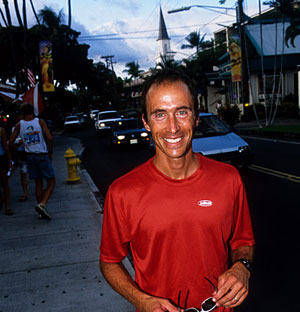
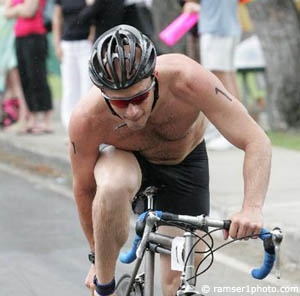
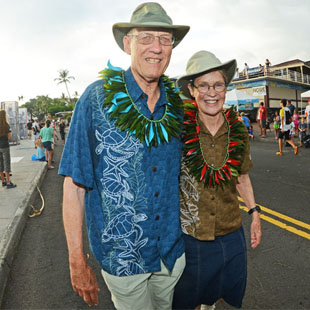
Start the discussion at slowtwitch.northend.network